An earlier ceasefire announced by the UN failed when the Saudis claimed they were not bound by it and began bombing again just hours after the cease fire was to take effect. It remains to be seen if the Houthis and their supporters honour this declaration.
The months of bombing and clashes has created a humanitarian disaster for Yemenis. Many have tried to flee battle zones or the country. Others are facing diminishing supplies of vital necessities and an overburdened medical system. More than 3,200 have been killed since the fighting began. An estimated 13 million are in need of food and other aid. The Saudi bombing strikes sometimes target residential areas. In a recent attack in the central city of Taiz medical sources report that 80 people were killed and another 150 other wounded. Al Qaeda in the Arab Peninsula(AQAP) has taken advantage of the conflict and chaos to control more territory, often with support from local Sunni tribes resisting the Houthi advance. The Islamic State has also shown its presence in Yemen by devastating suicide attacks in the capital and elsewhere.
0 Comments
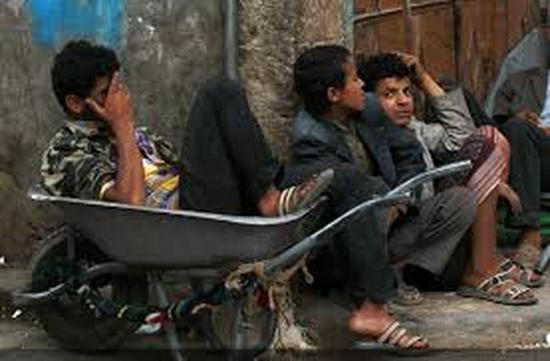 Even though many areas are free from bombing the blockade has led to shortages of everything. Meanwhile, the government-in-exile is safe away from it all in Ryadh, Saudi Arabia. One historic site has been hit and a UN compound also bombed injuring a guard and causing considerable damage. Some residential areas containing homes of relatives of former president Saleh who supports the Houthis have been bombed killing civilians. Rebel Houthi leader Zeifullah al-Shami told the Associated Press that the Hadi conditions were unacceptable and they do not address the country's humanitarian crisis. Perhaps, the Saudis will force Hadi to accept a cease fire without his conditions. Otherwise, the slaughter will continue. Al-Shami noted that talks sponsored by the UN were still ongoing in the capital Sanaa. A pro-Houthi activist said: "Those conditions are actually silly from the so-called President Hadi government. Those are the same conditions that were presented at Geneva talks and now here again.I know Houthi won’t accept any condition for withdrawal and there cannot be any precondition for ceasefire." The problem is that a UN resolution has been passed that demands that the Houthis withdraw from the areas that they have taken and lay down their arms. The power brokers that tell the UN what to do thought that they could just pass this resolution and run some bombing missions and the Houthis would fold. Now they are stuck with a hopeless client who will never get back into power and a resolution that stands in the way of any sort of rational agreement with the Houthis. Given the ability of the powerful to be inconsistent and hypocritical when it suits them the Saudis, the Gulf Cooperation Council, and the US may decide to more or less ignore the UN resolution. After all, countries such as Israel regularly ignore UN resolutions and no one pays much attention. If the parties want to help solve the humanitarian crisis which their actions have produced, they should agree to a ceasefire without setting conditions that would block a successful agreement. A Houthi activist Bukhaiti claimed that "the main source of the humanitarian crisis is the blockade by the Saudi-led coalition. He said that about 90 percent of aid is lying in Djibouti and the Saudis are not letting it enter Yemen." Since March estimates are that more than 3,000 people have been killed. AQAP has gained control of considerable territory including Mukalla the capital of Hadrahmut province. In the south local militia fighting against the Houthis are from the Southern Movement that wants an independent South Yemen or at least more autonomy. Direct support for Hadi is minimal. The Houthis have always wanted to be key players in forming a government but realize that they themselves as a Shia minority in a predominantly Sunni Yemen cannot rule by themselves. They could not have captured the territory they have without the support of ex-president Saleh and those loyal to him within the Yemeni army. Iran, which supports the Houthis, realizes this as well. It would like a political solution with a government that would give more power to the Houthis but composed of many different groups. If the Saudis and other Gulf States were willing to allow the Yemenis somewhat more independence a unity government might be possible. A unity government could deal with the increasing power not only of AQAP in Yemen but the Islamic State as well. It is in the interests of all the other parties to combine against this extremist threat and to end the disastrous civil conflict. If the Hadi government-in-exile refuses to cooperate the Saudis and other supporters should inform them that they will not receive any support. Sources: AlJazeera Business Insider Almanar Press TV
The conflict has killed more than 3,000 people. Envoy Ahmed said: "For the humanitarian pause, we are going to start tomorrow evening and we have assurances from all the parties, and we are quite optimistic it will be respected.We have agreed to go ahead, based on two major points. The first is the commitment of all parties not to violate this ceasefire, this humanitarian pause. The second is that humanitarian assistance can reach all parts of Yemen". Ahmed had just completed talks with the Houthis in Sanaa.
Earlier attempts to agree to a cease fired had foundered due to the government in exile of President Hadi insisting that the Houthis withdraw from key cities that they had occupied as a condition of any ceasefire. No doubt the Saudis and other allies told Hadi to agree to a cease fire without any conditions as appears to have happened. Relief agencies claim that more than 80 per cent of the 23 million Yemenis need emergency aid. Those who are able have fled the country. The Saudi blockade and allied militias often block aid to Houthi areas but the Houthis too have tried to disrupt aid or block aid to areas they do not control. At least the humanitarian pause is a step in the right direction. It may also allow time for more discussions between competing groups. However, AQAP will no doubt continue fighting the Houthis whether there is a cease fire or not. The group fought against the government of Hadi when it had control as well. Sources: http://www.nytimes.com/2015/07/10/world/middleeast/yemen-truce-agreement-is-reached-un-announces.html?_r=0 http://uk.reuters.com/article/2015/07/09/uk-yemen-security-idUKKCN0PJ1JD20150709 http://www.democracynow.org/2015/7/9/a_mounting_humanitarian_catastrophe_in_yemen
"UN Emergency Relief Coordinator Stephen O'Brien described the situation confronting the population of the Arab world’s poorest country as “catastrophic,” placing much of the blame on the Saudi-led air strikes that have devastated Yemeni cities, and Saudi Arabia’s blockade of Yemen’s ports, which have prevented not only the arrival of emergency relief supplies but also the basic flow of goods that existed before the war.
“The blockade means it’s impossible to bring anything into the country,” Nuha Abdul Jaber, Oxfam’s humanitarian program director in the Yemeni capital of Sanaa told the Guardian newspaper. “There are lots of ships, with basic things like flour, that are not allowed to approach. The situation is deteriorating, hospitals are now shutting down, without diesel. People are dying of simple diseases. It is becoming almost impossible to survive.” Earlier attempts at peace talks failed when the Hadi government in exile demanded concessions from the Houthi rebels as a condition of attending. This time, there are no preconditions. Dahllallah a-Shami, a senior member of the political wing of the Houthi rebels said the group would not accept preconditions set by other parties: We accepted the invitation of the United Nations to go to the negotiating table in Geneva without preconditions," said Daifallah al-Shami, a senior member of the rebels' political wing. Ezzedine al-Isbahi, information minister of the Saudi-backed Hadi government reported from Ryadh, the Saudi capital. that it would also send representatives to the talks in Geneva. Al-Isbahi said that the meeting would involve "consultations on implementing Resolution 2216" of the UN Security Council that was passed in April. This resolution imposed an arms embargo on the Houthis and demanded they relinquish seized territory. According to diplomats who attended a closed-door Security Council meeting the meeting will discuss a ceasefire, increased deliveries of humanitarian aid, and agreement on a Houthi withdrawal plan. There may be difficulties negotiating the withdrawal of the Houthis from territory they have captured unless the Saudis are willing to offer the Houthis a government that they find acceptable. The new vice-president appointed by Hadi may be acceptable to the Houthis as the leader of a unity government but the Houthis took power because earlier negotiations sponsored by the UN had failed to reach agreement on a government acceptable to all sides. Of course, AQAP remains outside any negotiations. The Southern Movement separatists will no doubt demand increased autonomy at the very least as a condition of their agreeing to any proposed government. At present they are fighting against the Houthis. The group wants a separate state of South Yemen as existed in the past. Sources: http://www.npr.org/2015/06/06/412445504/un-led-yemen-peace-talks-are-set-for-june-14 http://news.antiwar.com/2015/06/05/yemen-rebels-govt-both-agree-to-un-peace-talks/ http://wtop.com/politics/2015/06/un-chief-says-yemen-peace-talks-to-resume-june-14-in-geneva/ |
Like this writer's work please donate:
Ken Hanly
Ken is a retired philosophy professor living in the boondocks of Manitoba, Canada, with his Filipina wife. He enjoys reading the news and writing articles. Politically Ken is on the far left of the political spectrum on many issues.
Archives
November 2016
Categories
All
|
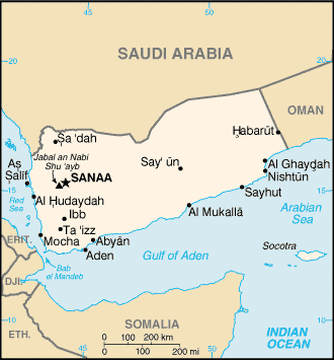
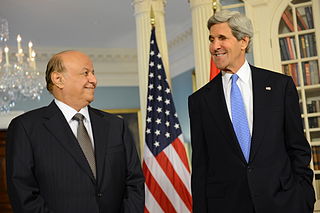
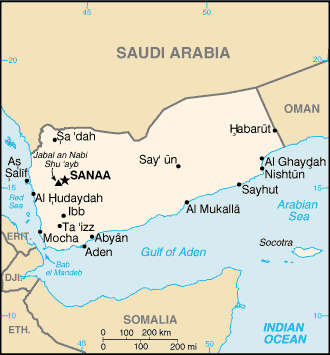
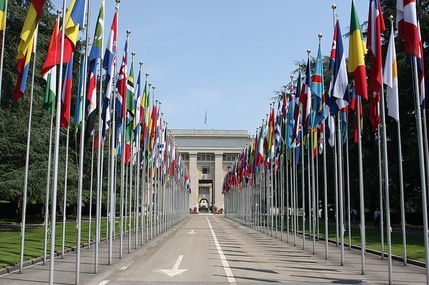
 RSS Feed
RSS Feed

